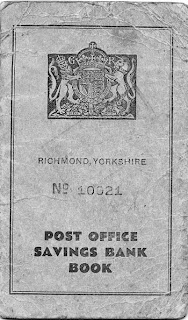
My great-aunt Lillian Barton, loved to garden and was an active member of her local gardening society right into her 70s. Lillian may not have known it, but gardening was a long standing interest in the family of her paternal grandmother Eliza Ditchburn (1856-1930).
Eliza Ditchburn's family came from the village of Marske-by-the-Sea which is just south of Middlesbrough. Her family, through her Bryden, Hartforth and Potts ancestors, can be traced back in the village right back into the 16th Century.
The Ditchburn family's gardening interests were shared by large numbers of Marske residents and from August 1875, the annual Marske Horticultural, Industrial and Live Stock Society show was a highlight of village life bringing together people from right across the class divide.



















